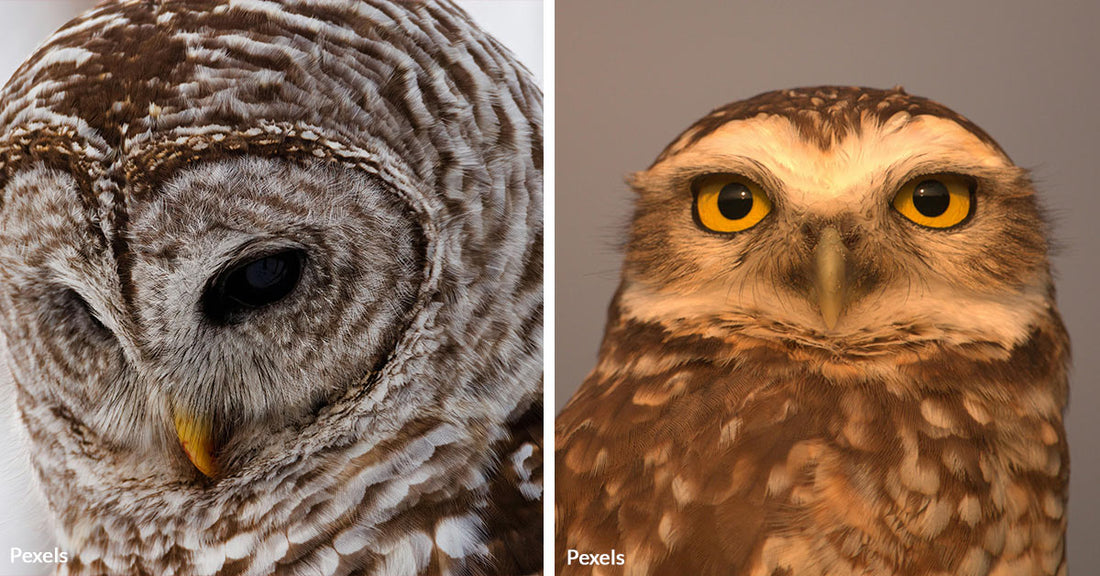URGENT: Bushfires Ravage People & Wildlife In Australia! Help Now!
Barred Owls Could Pay the Price to Save Their Endangered Cousins
Matthew Russell
In a move that blurs the lines between conservation and controversy, the U.S. Fish and Wildlife Service has unveiled a plan that is as drastic as it is debated: to cull over 400,000 barred owls in a bid to rescue the teetering population of the endangered spotted owl.
This drastic measure stems from the barred owl's invasive spread from the East Coast, which has led to significant declines in spotted owl numbers due to competition for habitat and food, reports USA Today.
At the heart of this contentious strategy lies a stark dilemma—can the sacrifice of one species be justified for the salvation of another?
This bold proposal ignites a complex debate on the ethics of intervention, the balance of ecosystems, and the unforeseen consequences of human influence on nature's delicate dance of survival.
 Photo: Pexels
Photo: PexelsThe U.S. plans to cull over 400,000 barred owls to save the spotted owl.
The Rising Threat of Barred Owls
Barred owls, larger and more aggressive than their spotted counterparts, have adapted well to various habitats, contributing to their rapid population growth in regions traditionally inhabited by spotted owls, KSBY reports. Their ability to thrive in diverse environments and consume a wide range of prey has given them a competitive edge, pushing spotted owls to the brink of extinction in certain areas, according to the Daily Mail.
 Photo: Pexels
Photo: PexelsSpotted owls are endangered due to habitat loss and competition from barred owls.
Debating Ethical Implications
The plan to remove barred owls raises significant ethical questions about human intervention in natural processes. Critics argue that humans should not interfere further in the wake of past environmental disruptions caused by human activities.
"While human-induced changes in animals habitats is certainly a bad thing, once they happen animals need to be able to sort it out − even if that means some species become threatened or endangered − without human interference," Michael Harris, director of Friends of Animals’ Wildlife Law Program, said in a statement in September. "We may have wrongly set the situation in motion, but we are only interfering further by trying to make it better for our 'preferred' species."
 Photo: Pexels
Photo: PexelsThe culling strategy involves using shotguns and owl calls.
However, proponents contend that action is necessary to correct human-induced imbalances that have allowed barred owls to dominate.
"...on behalf of the American people, the Fish and Wildlife Service and other federal agencies have not just a legal but an ethical responsibility to do everything we can within the bounds of our respective authorities and funding to prevent extinction and to help recovery," Kessina Lee, state supervisor of Oregon’s USFWS office told OPB.
 Photo: Pexels
Photo: PexelsBarred owls, originally from the East Coast, have invaded spotted owl territories.
Alternative Solutions Considered and Rejected
Authorities have explored various non-lethal alternatives to control barred owl populations, including relocation and sterilization. However, these methods were deemed ineffective or impractical in addressing the urgent need to protect spotted owls.
According to USA Today, the decision to employ hunters was seen as the most immediate and humane solution to prevent further decline of the spotted owl population.
The proposed strategy involves using shotguns to cull barred owls in targeted areas, employing calls to lure them into range. This approach aims to minimize harm to spotted owls and other non-target species. In more populated regions, trapping and euthanasia may be considered as alternatives to shooting, USA Today reports.
 Photo: Pexels
Photo: PexelsThe cull is seen as a last resort to prevent spotted owl extinction.
Opposition and Concerns
The plan has faced opposition from various groups, including animal welfare organizations, which argue against the killing of one species to save another.
Concerns have also been raised about the potential for mistaken identity, given the similarities between barred and spotted owls, the Daily Mail reports. Critics have also questioned the long-term effectiveness of such a large-scale culling operation and its impact on the broader ecosystem.
The U.S. government's plan to manage barred owl populations reflects a challenging dilemma: how to balance ethical considerations with the urgent need to preserve endangered species.
As this plan moves forward, it will undoubtedly continue to spark debate among conservationists, ethicists, and the public about the best course of action in such complex ecological scenarios.
It is reprehensible and risky to eliminate one species in such great numbers in an attempt to save another. Help us take a stand against the federal government's owl culling program. Click below to take action!

